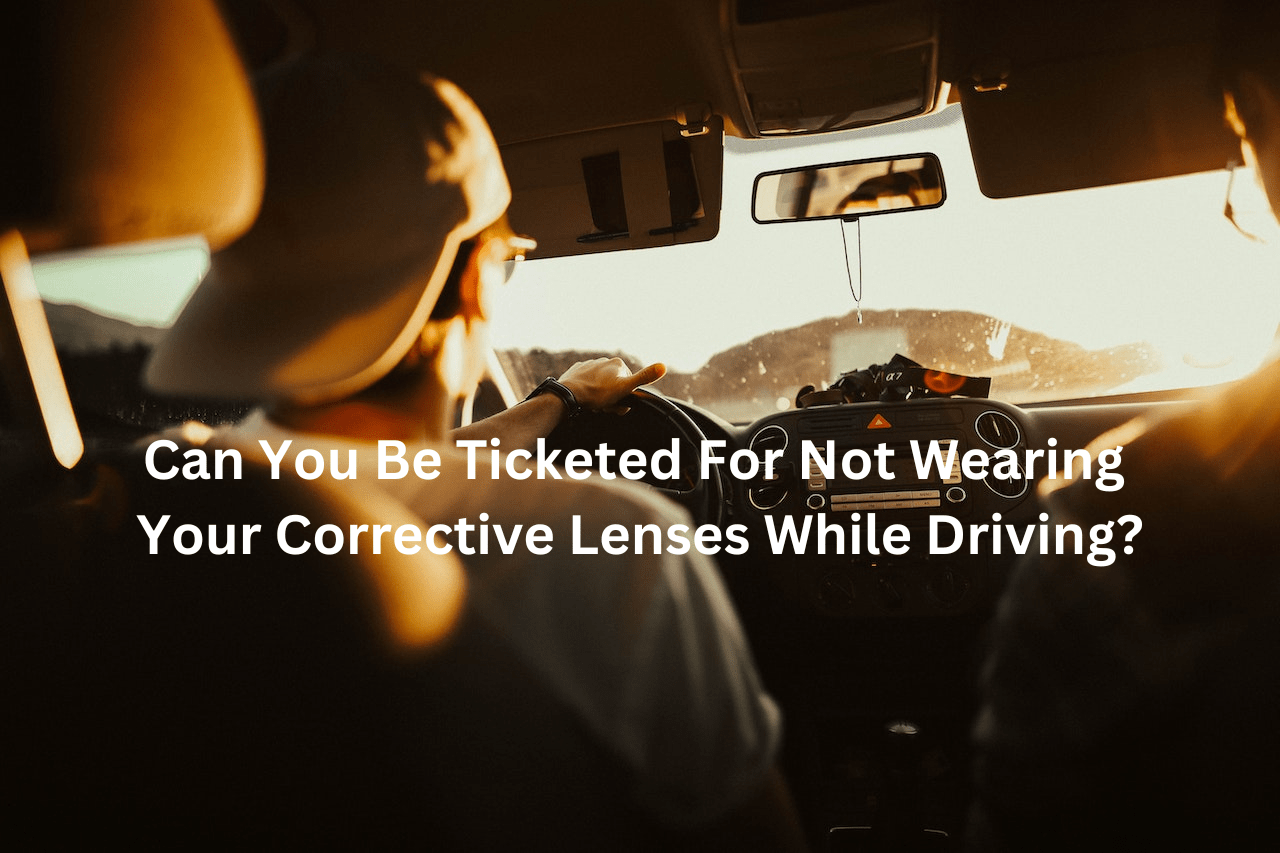Can You Be Ticketed For Not Wearing Your Corrective Lenses While Driving?

Did you know that if you have a corrective lens restriction on your driver’s license you will be ticketed if you are pulled over and are not wearing your glasses or contacts? In fact, in some states, you might even face time in jail. To find out your state regulations for wearing glasses or contacts while driving, check it out here.
If you aren’t sure if you have a restriction on your license, locate the section on your license that says restrictions. If it says “none” you are not required to wear your corrective lenses while driving. If it says “vision” under restrictions, you will be ticketed if you are pulled over and are not wearing your corrective lenses. Even if you only need your glasses at night, the restriction applies 24 hours a day and you will be ticketed or fined for not complying if pulled over during the daytime hours.
If you don’t have a restriction but you wear glasses or contact lenses to correct your distance or night vision, it is advised that you always wear your corrective lenses while driving.
If you have recently had corrective vision surgery, remember to go to your local DMV to have the restriction lifted because as long as it is on your license you are required to wear your corrective lenses.
Why You Should Wear Your Corrective Lenses While Driving
So why should you always wear corrective lenses while driving?
1. They Can Help Prevent Car Accidents
When wearing corrective lenses while driving a vehicle, there is a high percentage of car accidents that can be prevented, and the opposite if the glasses aren’t worn.
For example, in the UK, it is estimated that there are around 2,900 casualties that are caused by poor driver vision each year. In addition, it is also estimated that around 1.8 million drivers have vision below the minimum legal standard.
Therefore, it is always a good reminder to make sure your vision is all set before driving on the road, since there are laws in place that could get you in trouble if not followed.
2. There Are State and Federal Laws In Place
Now you might be curious about the laws in place for driving with glasses.
The standard requirement issued by the Utah DMV is the ability to see 20/40, and to have peripheral fields of 120 degrees in at least one eye, with or without corrective lenses.
The specific requirements vary by state, but in all states, it is illegal to drive if you do not meet the vision requirements. One additional requirement to keep in mind is that in Utah, drivers older than 65 years of age are required to pass a vision test every five years.
3. You Can Be Ticketed and Consequences Can Follow
Unfortunately, if you are caught not wearing necessary glasses while driving, there are serious consequences that can follow. The consequences can vary, depending on the state, but it can be anything from jail time or a fine up to $500.
You can also be ticketed, which could result in a potential loss or suspension of your license as well.
What If You Had Recent Corrective Vision Surgery?
If you have recently had corrective vision surgery, remember to go to your local DMV to have the restriction lifted because as long as it is on your license you are required to wear your corrective lenses.
What to do If Wrongfully Accused Of Not Wearing Corrective Lenses
If you have been in a car accident and you have been wrongfully accused of not wearing corrective lenses, it might be difficult to come up with a proper course of action. Fortunately, the experienced team at Handy Law knows how to help.
Preston and Garrett Handy have years of experience working the space of personal injury, and they know how to help in the best way possible. Call (801)-264-6677 for a complimentary consultation today. Most fines and tickets can be handled personally but if you are in a car accident where there is a debate about who is at fault, you might want to consult a Salt Lake City personal injury attorney. Contact our office for a FREE consultation. We can help.
